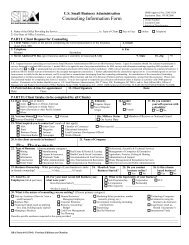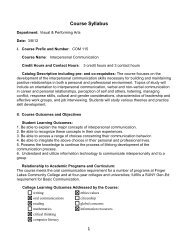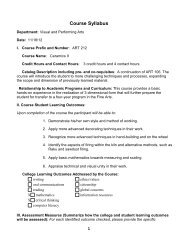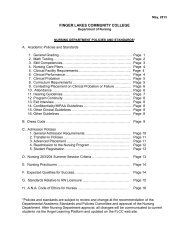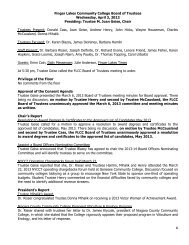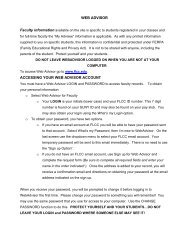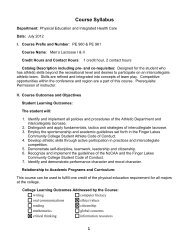Course Syllabus
Course Syllabus
Course Syllabus
You also want an ePaper? Increase the reach of your titles
YUMPU automatically turns print PDFs into web optimized ePapers that Google loves.
Date: April 2006<br />
I. <strong>Course</strong> Name: Basic Incident Command System<br />
Prefix and Number: WFS 200<br />
Credit Hours and Contact Hours: 1credit hour – 1 contact hour<br />
Catalog Description:<br />
This course introduces students to the principles of the Incident Command System (ICS).<br />
Five instructional modules are presented: Principles and Features of ICS, Organizational<br />
Overview, Incident Facilities, Incident Resources, and Common Responsibilities Associated<br />
with ICS Assignments. <strong>Course</strong> meets NWCG (National Wildfire Coordinating Group)<br />
standards for I-200 certification.<br />
II. <strong>Course</strong> Outcomes and Objectives<br />
Learning Outcomes:<br />
1. Identify and describe the principle features of ICS (Incident Command<br />
System)<br />
2. Describe how the ICS is used to meet the organizational needs of both<br />
large and small incidents.<br />
3. Apply the ICS model to several recent events.<br />
4. In small groups, create scenarios for the class where the ICS model<br />
would be applied.<br />
Relationship to Academic programs and curriculum:<br />
This course is required for the Wildland Fire Suppression Certificate<br />
and can be used towards a General Elective for other degrees.<br />
College competencies addressed by the course:<br />
__X__ writing __X__ ethics/values<br />
__X__ oral communications ___X_ citizenship<br />
__X__ reading ___X_ global concerns<br />
_____ mathematics _____ information resources<br />
__X__ problem-solving ___X_ professional competency<br />
_____ computer literacy<br />
III. Methods of Instruction<br />
Types of <strong>Course</strong> materials:<br />
There are 5 instructional modules in place for this course. In addition, we will<br />
participate in an in-class scenario.<br />
Methods of instruction: lecture, video, group project<br />
Assessment measures:<br />
Students should have a strong understanding of the ICS process and be able to<br />
easily identify its applicability. Students must have an intimate knowledge of the<br />
ICS organizational structure. Finally, students should be able to create a<br />
workable ICS framework for a given written scenario.
Methods of Evaluation:<br />
Written test, scenario participation<br />
IV. General Outline of Topics covered<br />
1. Introduction to the History of ICS<br />
2. Principles and Features of ICS<br />
3. Incident Facilities<br />
4. Incident Resources<br />
5. Common Responsibilities Associated with ICS Assignments<br />
6. ICS Scenarios



